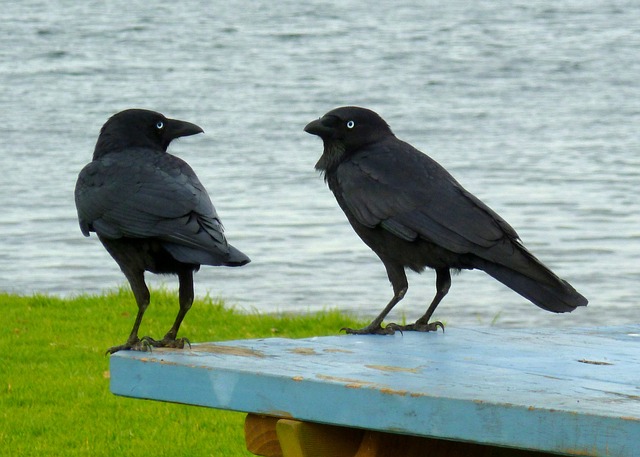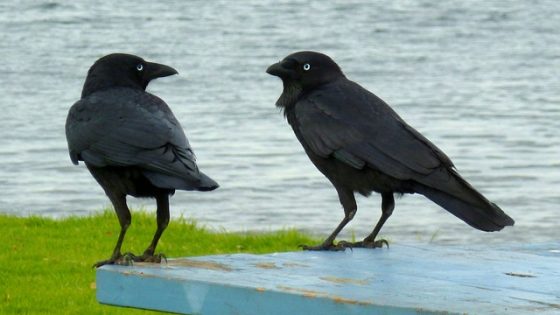
Did you know that animals have their own distinct dialects and there is a vast quantity of different languages spoken around Europe by animals?
Europe is, of course, an amazing melting pot of languages and cultures. So maybe it will come as no surprise then to hear that even the animals mix things up with a “kwak kwak” here and a “bra bra” there, here a “paa”, there a “rap”, everywhere a “vak vak”!
That was all different European duck dialects, by the way. In Holland the ducks go “kwak kwak”, in Iceland “bra bra”, in Bulgaria “paa paa”, in Denmark “rap rap”, and in Turkey “vak vak”.
So, watch out the next time you are in the park beckoning the ducks to come and enjoy your bread! (Also, I hear that French ducks are quite particular about their boulangerie and prefer a croissant before midday.)
There are now 51 countries in Europe. 24 languages are recognised as official languages of the European Union, with lots more indigenous regional and minority languages. Added to this, modern people move around a lot all the time, in and out of Europe, picking up new influences and learning additional languages.
Europe is truly a hustling, bustling, multi-cultural hive of activity with an incredible amount of different languages spoken around Europe. There are about 7,000 unique languages spoken in the world today and in Europe you have a good chance of hearing the vast majority of them.
We are getting good at learning foreign languages. There are now fine resources and teachers available and lots of possibilities to practice. Over half of Europeans are able to hold a conversation in at least one additional language.
European birds also travel around a lot and do their fair share of mixing. One wonders how they get by in foreign lands.
If a Danish bird hops across to Iceland, his “pip pip” may be a bit confusing to the “bíbí-ing” Icelandic warblers. He will have to pack a phrasebook if he plans a trip to Sweden as well as there the birds say “kvitt kvitt”.
It´s a complicated business! Animals add considerably to the plethora of different languages spoken around Europe.
A rooster in Spain will cry “quiquiriquí” as the sun rises on the horizon, for example. Whereas his British cousin will let out a “cock a doodle doo” and Icelandic roosters greet the day with “gaggalagó”.
If you are on holiday in Turkey and you hear a “hav hav” you might be wondering what kind of weird and wonderful creature is lurking around the corner. It will, in fact, be a Turkish dog.
Your Spanish dog, with his “guau guaus” might have a tough time getting to know his Turkish counterpart. Just as we struggle to understand and learn the many different languages spoken around Europe.
Help is at hand though! Let Coursefinders assist you in finding your perfect language school!!
Among the best second language learners are Holland, Luxemburg, Latvia, and Malta, where almost everyone speaks at least one second language. European countries bringing up the rear are the UK, Ireland, Portugal, and Italy.
None of us, however, are much good at speaking with our European animals!
So, here is a little introduction to help you in your quest to understand the numerous different languages spoken around Europe in the form of a list of some of the most useful European animal languages.
Listen out for them the next time you are on holiday and maybe try out some of the phrases on the locals!
Bird
In Bulgarian, chik-chirik
In Czech, píp píp, cvrliki
In Danish, pip pip
In Dutch, twiet twiet, tjierp, tjielp, tsjilp
In English, chirp chirp, tweet tweet, cheep cheep, peep peep
In Finnish, tsirp tsirp, tviit, piip piip, ti-ti-tyy
In French, cui cui, piou piou
In German, piep piep, tschiep
In Greek, tsiu tsiu
In Hungarian, csip-csirip
In Icelandic, bíbí
In Italian, cip cip, pio pio
In Polish, ćwir ćwir, fiu-fiu
In Portuguese, piu piu
In Romanian, cip cirip, piu piu
In Russian, chiric-chiric
In Spanish, pío, pío
In Swedish, kvitt, kvitt
In Turkish, cik cik, cibili cibili
Chicken
In Bulgarian, ko-ko-ko
In Czech, kokodák
In Danish, kuk kuk, gok gok
In Dutch, tok tok tok
In English, cluck cluck, bok bok bok, bok bok b’gawk
In Finnish, kot kot
In French, cot cot cot, cot cot codet
In German, gack gack gack
In Greek, coco co, clo clo
In Hungarian, kot-kot-kot-kodács
In Italian, coccodè
In Polish, ko ko
In Portuguese, có có có
In Romanian, cotcodac
In Russian, ko-ko-ko
In Spanish, kikiriki
In Swedish, kluck kluck
In Turkish, gıt-gıt gıdaak
Dog
In Bulgarian, bow bow, djaff djaff
In Czech, haf haf
In Danish, vuf vuf, vov vov,
In Dutch, waf waf, woef woef
In English, woof, bow wow, ruff
In Finnish hau hau, vuh vuh
In French, ouah ouah, ouaf ouaf, wouf wouf
In German, wau wau, waff waff, wuff wuff
In Greek, ghav ghav
In Hungarian, vau vau
In Icelandic, voff voff
In Italian, bau bau
In Norwegian voff voff, vov vov
In Polish, hau hau
In Portuguese, au au
In Romanian, ham ham
In Russian, gav gav
In Spanish, guau guau
In Swedish, vov vov, voff voff
In Turkish, hav hav
Duck
In Bulgarian, paa paa
In Czech, káč káč
In Danish, rap rap
In Dutch, kwak kwak, kwaak, kwaak
In English, quack
In Finnish, kvaak kvaak
In French, coin coin
In German, quak quak
In Greek, cuac cuac
In Hungarian, háp háp
In Icelandic, bra bra
In Italian, qua qua
In Norwegian, kvakk kvakk
In Polish, kwa kwa kwa
In Portuguese, quá quá, quak quak
In Romanian, mac mac
In Russian, krja krja
In Spanish, cua cua
In Swedish, kvack kvack
In Turkish, vak vak
Frog
In Bulgarian, cva cva
In Czech, kvá kvá
In Danish: kvæk kvæk, græbæk
In Dutch: kwaak kwaak
In English, ribbit, croak
In Finnish, kurr kurr, kroak
In French, croac croac
In German, quaak
In Greek, koax koax, cuacs cuacs
In Hungarian, brekeke, brekk, kutykurutty, kvákk
In Italian, cra cra
In Norwegian, kvekk kvekk, kvakk kvakk
In Polish, kum kum, rech rech
In Portuguese, croac croac
In Romanian, oac oac
In Russian, kva kva
In Spanish, croac croac
In Swedish, kvack kvack, ko ack ack ack
In Turkish, vrak vrak
Horse
In Czech, íí-hahá
In Danish, vrinsk
In Dutch, niiii, hiiii
In English, neigh
In Finnish, ii-ha-haa
In French, hiii hiii
In German, wiehiehie
In Hungarian, nyihaha
In Italian, hiii hiii
In Norwegian, vrisnk
In Polish, iiii-haaa
In Portuguese, hi hi
In Romanian, ni-ha-ha
In Russian, i-go-go и-го-го
In Spanish, ji ji
In Swedish’, gnägg
In Turkish, ih-hi-i-i
Pig
In Bulgarian, gruh gruh
In Catalan, oinc oinc
In Czech, chro chro, kvík kvík
In Danish, øf øf, grønt
In Dutch, knor knor
In English, oink oink
In Finnish, röh röh, nöf nöf
In French, groin groin
In German, grunz grunz, oink oink
In Hungarian, röf röf, uí uí
In Italian, oink oink
In Polish, kwi kwi, chrum chrum
In Portuguese, ronc ronc, oinc oinc
In Romanian, groh groh
In Russian, xrju xrju
In Spanish, oinc oinc
In Swedish, nöff nöff
Rooster
In Bulgarian, cucurigu
In Czech, kykirikí
In Danish, kykkeliky
In Dutch, kukeleku
In English, cock a doodle doo
In Finnish, kukkokiekuu, kukko, kiekuu
In French, cocorico
In German, kikeriki
In Greek, ciciricu κικιρίκου
In Hungarian, kukurikú
In Icelandic, gaggalagó
In Italian, chicchirichi
In Norwegian kykkeliky
In Polish, kukuryku
In Portuguese, cocorocó, cocoricó
In Romanian, cucurigu
In Russian, koo-ka-re-koo
In Spanish, quiquiriquí, quiquiriquiquí, cocorocó
In Swedish, kuckeliku
In Turkish, ü-ürü-üüü
Sheep
In Bulgarian, beee
In Czech, béé
In Danish, mæh
In Dutch, bèh, mèh
In English, baa
In Finnish, mää, bää
In French, bêêh
In German, mäh
In Hungarian, bee
In Icelandic, mee
In Italian, bee
In Norwegian, bæ
In Polish, beee
In Portuguese, meh
In Romanian, meee, beee
In Russian, beh
In Spanish, be
In Swedish, bä
In Turkish, mee

